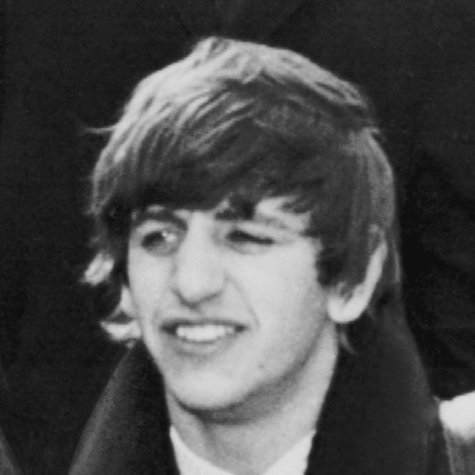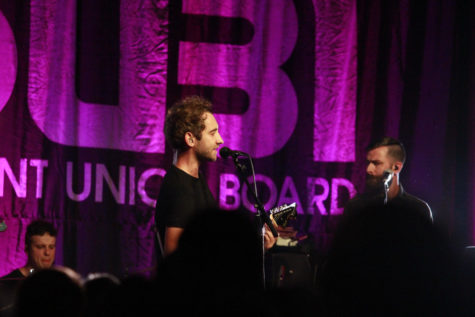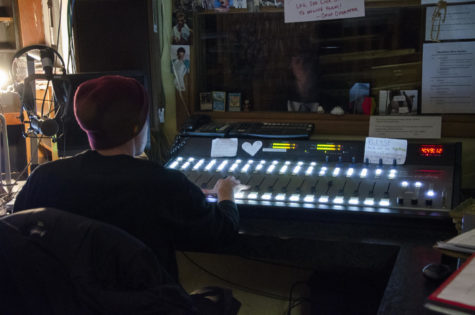Facing the music: ISU music majors to graduate to an uncertain fate
October 31, 2013
It is not a hobby, it is not a phase and it is not something they are going to grow out of. The music majors of Iowa State know going in that turning their lives’ passion into a livelihood will not be an easy task. However, once they complete their adventure at Iowa State, few music graduates fit the stereotype of starving artist.
“The [job] market is definitely healthy,” said Nathan Bierl, who graduated last spring and is now teaching fifth through eighth grade band and sixth grade general music at Davis County Middle School in Bloomfield, Iowa. “I believe everyone who has graduated from ISU with a music teaching certificate in the last few years has gotten a teaching job or gone to grad school the next fall semester.”
Zach Howell, senior in music who worked in admissions for the department of music and theater during summer 2013, echoed Bierl’s belief: ”All of our graduates who were pursuing a job that graduated this past spring received a job by the end of the summer, which is a really really good turnout and turnaround for our department.”
But for one ISU graduate, the time between the start and end of summer 2013 felt much longer than three months.
“The job market was really scary for someone with just a B.A. in Music,” said Tyler Mootz, who graduated from Iowa State with a Bachelor of Arts in music this spring.
“I applied for about 30 different jobs over the summer. After quite a few interviews, I was actually in a final round interview for a pretty decent job with Nationwide Insurance. I didn’t get that job, and after more interviews, Starbucks was actually the first place I could get a job,” Mootz said.
“I thought that just being college educated, I would be able to get something. I really quickly learned that it takes a lot more than just having the degree,” said Mootz, who returned to Iowa State to get a Bachelor of Music in music education.
“Out of my five years at Iowa State, scheduling has been my least favorite thing ever,” Howell said. “The amount of credits you’re taking don’t really add up to the amount of time you’re having taken up in your schedule.”
Ensembles and other required music classes take up much more time in a music major’s schedule than most majors do. For example, a freshman music major taking the nine credits of music courses suggested in Iowa State’s four-year music degree graduation plan will actually spend 13 to 15 hours in the classroom for those nine credits. Add in the two to three hours of practice music majors are supposed to complete daily, and a 15-credit semester begins to look like a 30-credit semester.
“It is almost a double major, music and education, so there is a lot of time commitment,” said Mary StoneCQ, sophomore in music. “If you want to get it done in four years, you have to take a fairly heavy course load, 16, 17 to like 21 credits a semester. Often people take five years to finish out their education degree because they want to take like 15, 17 credits, an average workload.”
Despite their busy schedules, many music majors also seek out extracurricular opportunities for performance and professional growth.
“If you’re gonna be music ed, you really have to put in the effort to learn more outside of the set curriculum,” Mootz said. Mootz, in addition to his studies and job at Starbucks, is serving as an assistant music director for ISU Theatre’s production of “The 25th Annual Putnam County Spelling Bee” and also manages stage for the department of music.
“I’ve always loved conducting,” said Howell, whose extra musical activities have included independent studies in conducting and conducting for teams in the Varieties student music competition. “When I’d hear a piece of music when I was like 5, I’d have a stick and I’d be waving it and pretend like I was conducting something, and that’s not stopped a lot, because now I have five batons and I do the same thing.”
Beyond completing Iowa State’s curriculum requirements and participating in extracurricular activities, music education students must also meet the state of Iowa’s teaching standards.
“Iowa has a fairly good program. We’re being held to a higher standard for new teachers, being that we have to take Praxis 2 to get our Iowa license to teach,” Howell said.
Despite Iowa State’s success with music education graduates securing jobs, the job search and application process for future Iowa music teachers is anything but simple.
When asked about his future music education job search, Mootz said, “It’s really just kind of apply for everything and see what comes up.” Mootz plans to student teach in spring 2014 and plans to graduate at the end of that semester.
Mootz’ plan of applying “for everything” seems to have worked for other Iowa State graduates.
“I’d been applying places for about four months while I was student teaching, but most of them would go to people with considerably more experience than me,” said Bierl, who secured his teaching job in Bloomfield in June, after his May graduation day.
“I interviewed for this job in May of 2013 after applying for 30-plus positions starting in January,” said Rachel Petsche, an ISU graduate who now teaches 5-12 grade band at West Hancock School in Britt and Kanawha, Iowa. “This was probably somewhere around my 5th interview, but the first job I was offered. I accepted it almost immediately.”
“I don’t think music majors should despair over the job market. I think instead of being intimidated or stressed out about it, they should get a chip on their shoulder and use that as a driving factor,” Mootz said.
“Music education is considered a need area in several states at the moment,” Petsche said. “When I was applying for teaching jobs last spring, there were multiple openings in both instrumental and vocal education in Iowa. I don’t really know a whole lot about the other states because I had no intention of leaving Iowa, but when I was looking into some of the student loan forgiveness programs music education was a need area in several states.”
Despite music education being a “need area,” some music majors believe it is undervalued in Iowa’s public education system.
“I don’t know how it is in other states, but Iowa has definitely been having problems about the arts and whether or not to keep it in schools,” said Tenea Fabray, sophomore in music. “In 2009, I think, they took a lot of that out of schools. … I think I should be OK as long as the Iowa Legislature decides to keep arts in schools.”
Fabray, along with other high school students and music educators, rallied in the capital against fine arts budget cuts. Their efforts were unsuccessful, and Fabray’s school lost a popular band director due to legislation changes.
“It was just really upsetting because they thought that music and gym was not important enough to keep in schools, and if they did, they only put it as to one teacher, putting a lot of stress on that teacher and then laying off a bunch of other teachers,” Fabray said.
Despite changes in Iowa’s State Legislature, there is still one place where music teachers are valued: the halls of Music Hall on Iowa State’s campus.
“I think ISU’s most important resource for me has been the professors more so than the classes,” Petsche said. “Many of them helped form me into the person and educator I am and will be someday.”
According to Howell, Iowa State’s music faculty encourage personal and professional growth by directing students to join groups such as the Iowa Music Educators Association and the National Association for Music Education. “There’s a lot of push from our directors to have membership in those organizations,” Howell said.
Music majors with Music Hall often push each other as well.
“Oftentimes in fields such as music, drama, arts, the arts tend to have a lot of competition among them just due to the fact that everyone is slightly different and … auditioning for chairs or auditioning for a musical or an opera,” Stone said. “Auditioning, you’re competing … but here at Iowa State all the students are encouraging each other, they’re building each other up, it’s not a competitive department at all. There’s a lot of camaraderie between the students.”
This supportive atmosphere is not exclusive to Iowa State. “There doesn’t seem to be as much of the competitive edge with music,” said Howell of the music directors and teachers of central Iowa, an area where he has completed practicum and would like to teach in someday. “I’d like to just teach in Iowa and hope to make a difference in some students’ lives.”
















